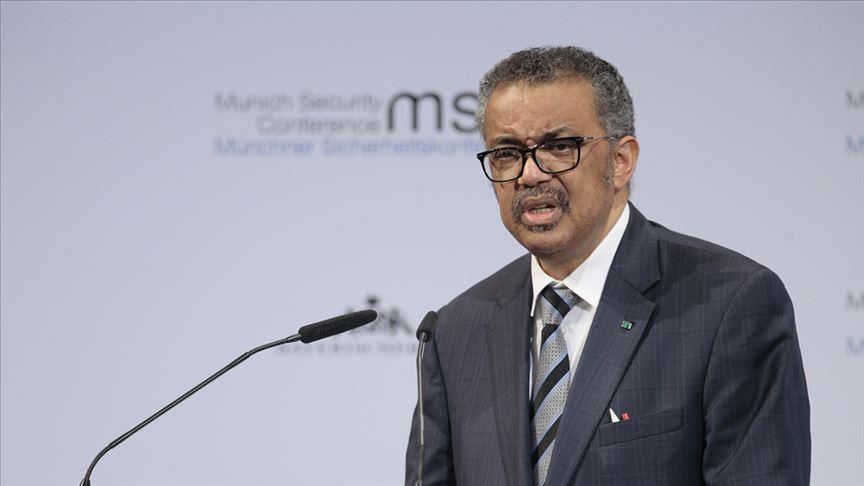Behind the rising numbers of registered novel coronavirus cases and deaths — both expected this week to reach 20 million and 750,000, respectively — is “a great deal of pain and suffering,” and leaders need to embrace new measures to turn the outbreak around, the top official of the World Health Organization (WHO) said Monday.
Addressing a bi-weekly COVID-19 webinar for journalists Monday, WHO Director-General Tedros Adhanom Ghebreyesus said: “I know many of you are grieving and that this is a difficult moment for the world.”
“But I want to be clear, there are green shoots of hope and no matter where a country, a region, a city or a town is — it’s never too late to turn the outbreak around,” he said, singling out countries that had succeeded in containing the virus.
Leaders need to take action and citizens need to embrace new measures, said Tedros. He cited countries in the Mekong Region in Southeast Asia, as well as New Zealand, Rwanda and many island nations across the Caribbean and the Pacific that were able to suppress the virus early.
“New Zealand is seen as a global example, and over the weekend, Prime Minister Jacinda Ardern celebrated 100 days with no community transmission, while stressing the need to remain cautious,” said Tedros. “Rwanda’s progress is due to a similar combination of strong leadership, universal health coverage, well-supported health workers and clear public health communications.”
The WHO chief noted that all testing and treatment for COVID-19 was free in Rwanda, so there were no financial barriers to getting tested. “And when people test positive for the virus, they’re isolated and health workers then visit every potential contact and test them also.”
Getting the basics right provides a clear picture of where the virus is and the necessary targeted actions to suppress transmission and save lives, Tedros added. “Doing so means that where there are cases, the government can quickly implement targeted measures and focus on control efforts where they are needed the most.”
He said countries such as France, Germany, South Korea, Spain, Italy and the UK had significant outbreaks of the virus, “but when they took action, they were able to suppress it.”
In recent days, the UK had put areas in northern England under stay-home orders as clusters of cases were identified.
“Whether countries or regions have successfully eliminated the virus, suppressed transmission to a low level or are still in the midst of a major outbreak, now is the time to look at it all. By investing in the basics of public health, we can save both lives and livelihoods,” said Tedros.
Countries that have done this successfully use a risk-based approach to reopen segments of societies, including schools.
The pandemic has claimed over 731,000 lives in 188 countries and regions since it originated in China last December, according to the US-based Johns Hopkins University.
More than 19.8 million infections have been reported worldwide, including over 12.1 million recoveries. The US, Brazil and India have the highest numbers of cases — over 10 million in total.











